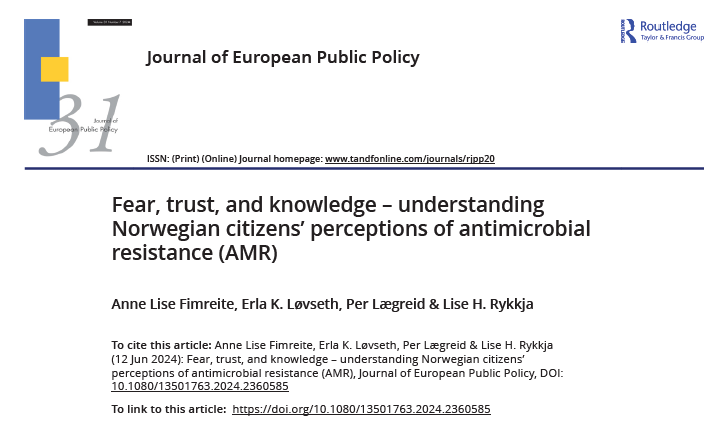The growing threat of antimicrobial resistance (AMR) is well-known among researchers and policymakers, prompting them to devise plans and strategies to combat this global challenge. However, tackling AMR effectively requires more than just expert intervention; it demands the active engagement and awareness of citizens. In a recent article titled “Fear, Trust, and Knowledge – Understanding Norwegian Citizens’ Perceptions of Antimicrobial Resistance (AMR),” authors Anne Lise Fimreite, Erla K. Løvseth, Per Lægreid, and Lise H. Rykkja delve into how Norwegians perceive this pressing issue.
The authors emphasize the crucial role of governance legitimacy in crisis management and policymaking, particularly in the fight against AMR. Past research indicates that the public generally has limited awareness and understanding of antimicrobial resistance. This new study leverages panel data from a Norwegian survey, focusing on citizens’ levels of fear, knowledge, and trust concerning AMR.
The findings reveal that Norwegian citizens are increasingly aware of the AMR crisis and are concerned about the declining effectiveness of antibiotics. However, these concerns are more closely linked to fear—stemming from both other major crises and their knowledge of AMR—than to trust, whether in others or in the authorities.
For a deeper dive into these findings and their implications, read the full article here.

